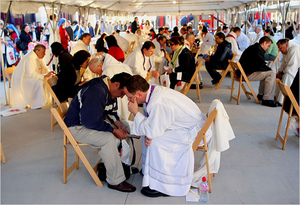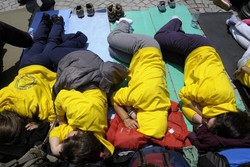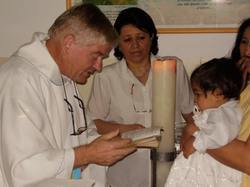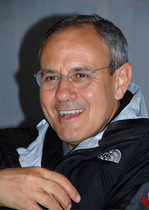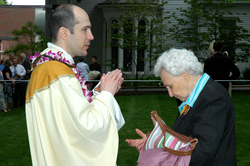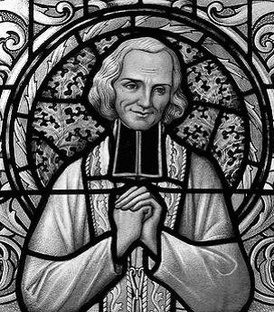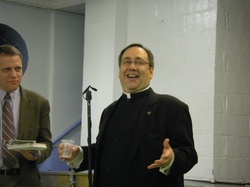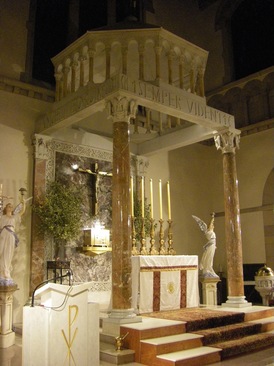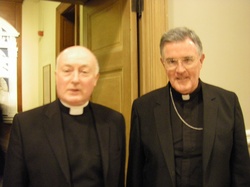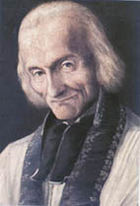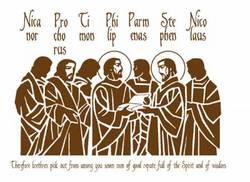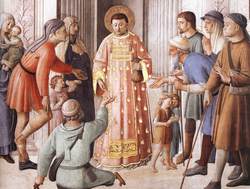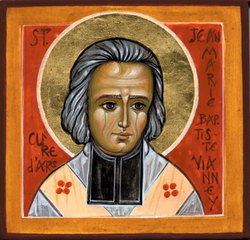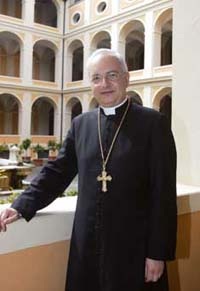Yesterday's general audience (August 19, 2009) Pope Benedict took the
opportunity to draw our attention to the saint being memorialized in the
Liturgy, Saint John Eudes, as a model for personal renewal which will lead to
the renewal of the priesthood. The zeal, the desire for the face of God, the
need for conversion will lead, I am convinced, not only the renewal of the
priesthood (and seminarians) but also the entire Church. Christ is the one
thing we are seeking, the one person we are seeking. As the Baptist said, "He
must increase; I must decrease." AND focus on CHRIST!!!!! Read a portion of the Pope's address.
While
contempt was being spread for the Christian faith by some currents of thought
that were prevalent then, the Holy Spirit inspired a fervent spiritual renewal,
with prominent personalities such as that of Berulle, St. Vincent de Paul, St.
Louis Mary Grignion de Montfort and St. John Eudes. This great "French
school" of holiness also had St. John Mary Vianney among its fruits. By a
mysterious design of Providence, my venerated predecessor, Pius XI, proclaimed
John Eudes and the Curé d'Ars saints at the same time, on May 31, 1925,
offering the Church and the whole world two extraordinary examples of priestly
holiness.
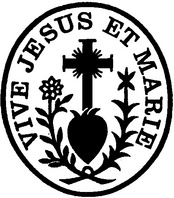
In the context of the Year for Priests, I wish to pause to underline
the apostolic zeal of St. John Eudes, directed in particular to the formation
of the diocesan clergy.
The saints have verified, in the experience of life,
the truth of the Gospel; in this way, they introduce us into the knowledge and
understanding of the Gospel. In 1563, the Council of Trent issued norms for the
establishment of diocesan seminaries and for the formation of priests, as the
council was aware that the whole crisis of the Reformation was also conditioned
by the insufficient formation of priests, who were not adequately prepared
intellectually and spiritually, in their heart and soul, for the priesthood.
This
occurred in 1563 but, given that the application and implementation of the
norms took time, both in Germany as well as in France, St. John Eudes saw the
consequences of this problem. Moved by the lucid awareness of the great need of
spiritual help that souls were feeling precisely because of the incapacity of a
great part of the clergy, the saint, who was a parish priest, instituted a
congregation dedicated specifically to the formation of priests. He founded the
first seminary in the university city of Caen, a highly appreciated endeavor,
which was soon extended to other dioceses.
The path of holiness he followed and
proposed to his disciples had as its foundation a solid confidence in the love
that God revealed to humanity in the priestly Heart of Christ and the maternal
Heart of Mary. In that time of cruelty and loss of interior silence, he
addressed himself to the heart so as to leave in the heart a word from the
Psalms very well interpreted by St. Augustine. He wanted to remind people, men
and above all future priests of the heart, showing the priestly Heart of Christ
and the maternal Heart of Mary. A priest must be a witness and apostle of this
love of the Heart of Christ and of Mary.
Today we also feel the need for
priests to witness the infinite mercy of God with a life totally
"conquered" by Christ, and for them to learn this in the years of
their formation in the seminaries. After the synod of 1990, Pope John Paul II
issued the apostolic exhortation Pastores Dabo Vobis, in which he
took up and actualized the norms of the Council of Trent and above all underlined
the need for continuity between the initial and permanent moments of formation.
For him, for us, this is a real point of departure for a genuine reform of
priestly life and apostolate, and it is also the central point so that the
"new evangelization" is not simply an attractive slogan, but rather
is translated into reality.
The foundations of formation in the seminary
constitute that irreplaceable "humus spirituale" in which it is
possible to "learn Christ," allowing oneself to be progressively
configured to him, sole High Priest and Good Shepherd. The time in the seminary
should be seen, therefore, as the actualization of the moment in which the Lord
Jesus, after having called the Apostles and before sending them out to preach,
asks that they stay with him (cf. Mark 3:14).
When St. Mark narrates the
vocation of the Twelve Apostles, he tells us that Jesus had a double objective:
The first was that they be with him, the second that they be sent to preach.
But in going always with him, they truly proclaim Christ and take the reality
of the Gospel to the world.
In this Year for Priests, I invite you to pray,
dear brothers and sisters, for priests and for those preparing to receive the
extraordinary gift of the priestly ministry. I conclude by addressing to all
the exhortation of St. John Eudes, who said thus to priests: "Give
yourselves to Jesus to enter into the immensity of his great Heart, which
contains the Heart of his Holy Mother and of all the saints, and to lose
yourselves in this abyss of love, of charity, of mercy, of humility, of purity,
of patience, of submission and of holiness" (Coeur admirable, III, 2).
